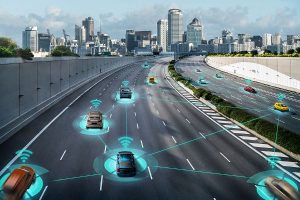The Bipartisan Infrastructure Deal (also known by the formal title, Infrastructure Investment and Jobs Act), kick-started activity to modernize our nation's critical physical assets and reimagine how we use transportation, utilities, and more with $1.2 trillion in funding. In just the last year, $200 billion has been distributed over 20,000 projects in all 50 states and U.S. territories. That includes starting repairs to more than 69,000 miles of roadway, 500,000 electric vehicle charging stations, 3,700 bridge repair and replacement projects, and fielding of 5,000 clean transit school buses. Money continues to be made available through grants to improve legacy infrastructure and introduce new technologies to improve how the nation uses infrastructure.
Everything Old is New Again
Rail travel is receiving heavy investment due to increased usage and demand. Virginia and North Carolina have seen record-high ridership in the last year and those states are now looking for ways to increase the number and frequency of passenger travel. Virginia is looking to purchase right of way from freight railroads, so it can install passenger-only tracks at key chokepoints. Tennessee is also looking to increase rail options in the state pulling together potential ridership numbers to advocate for federal investment in new rail lines to serve the state and surrounding metropolitan areas.
Introducing Next Generation Transport
The $100 million Strengthening Mobility and Revolutionizing Transportation (SMART) program looks to fund projects that show how technology, like autonomous vehicles, roadside sensors, and aerial drones can be used to address problems such as traffic congestion, crashes, and lack of transportation access. The grant funding will be released in two stages, first with a planning and prototyping phase that gives awardees $2 million each. Then, from that group, a final selection of grantees will get awards of around $15 million that can be used to carry out projects.
The infrastructure for electric vehicles is also being built out from the bipartisan bill funding. There is $700 million in grants for local governments and other entities to install electric vehicle chargers in their communities. The Charging and Fueling Infrastructure (CFI) grant program will help cities, counties, and tribal governments provide chargers in rural areas, downtowns, residential neighborhoods and underserved areas.
Thinking Big by Going Small
Innovations like those being awarded SMART and CFI funding are frequently made possible by small businesses. The Biden Administration recognized this, and the White House has issued orders to expand total federal contract spending on Small and Disadvantaged Businesses by 50% over five years. The Department of Transportation Office of Small and Disadvantaged Business Utilization (OSDBU) launched a series of initiatives to ensure these goals can be met.
OSDBU is partnering with the Department of Commerce Minority Business Development Agency and the Small Business Administration (SBA) to help connect small and disadvantaged businesses to federal contract opportunities by providing additional access to capital, including private capital facilitated through the SBA Office of Investment and new SBA Small Business Investment Company (SBIC)-related resources.
GovEvents and GovWhitePapers feature many resources that detail how infrastructure money is being used and where there is need for investment.
- Local Government Reimagined (June 7-9, 2023; Long Beach, CA) - This conference investigates how local governments enhance the quality of life in their communities by addressing critical issues such as climate change, housing, aging infrastructure, and economic development.
- APTA's TRANSform Conference and Expo (October 9-11, 2023; Orlando, FL) - Public transit's premier showcase of technology, products, and services connects attendees to what's now and what's next in public transportation.
- Smart Cities Connect Fall Conference and Expo (November 28-30, 2023; National Harbor, MD) - This event is an accelerator of smart city innovation in North America. With a keen focus on city leaders and their priorities, it brings together the largest collection of intelligent systems providers for energy, infrastructure, networks, data management, urban mobility, resident engagement and governance solutions.
- Fostering Effective Energy Transition 2022 Edition (white paper) - This report on global energy transition builds on the trends from the Energy Transition Index to provide perspective on the current challenges and recommendations on how to navigate the transition through a turbulent macroeconomic and geopolitical environment.
- Federal Broadband Data Sources: Frequently Asked Questions (white paper) - This report provides an overview of select federal broadband data sources and answers frequently asked congressional questions concerning these sources. The answers to frequently asked questions include links to available funding sources, service maps, provider speeds and technologies, and guidance resources.
- Shaping the Future of Small and Medium-Sized Cities: A Framework for Digital Transformation (white paper) - For small and medium-sized cities (SMCs), digital transformation can disrupt traditional business models, breakthrough geographical and spatial boundaries, and create new ways to live in the digital era. This report analyzes the challenges, needs, and concerns of SMCs undergoing digital transformation and suggests actions for various urban stakeholders.
To stay on top of infrastructure projects and planning use the resources available via GovEvents and GovWhitePapers.




